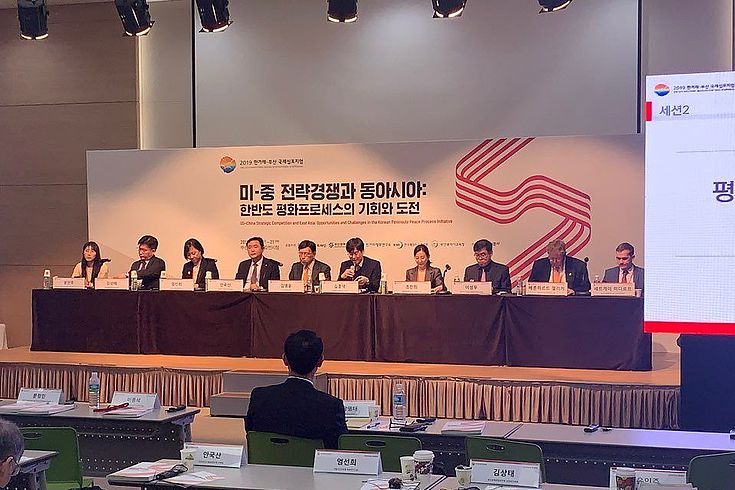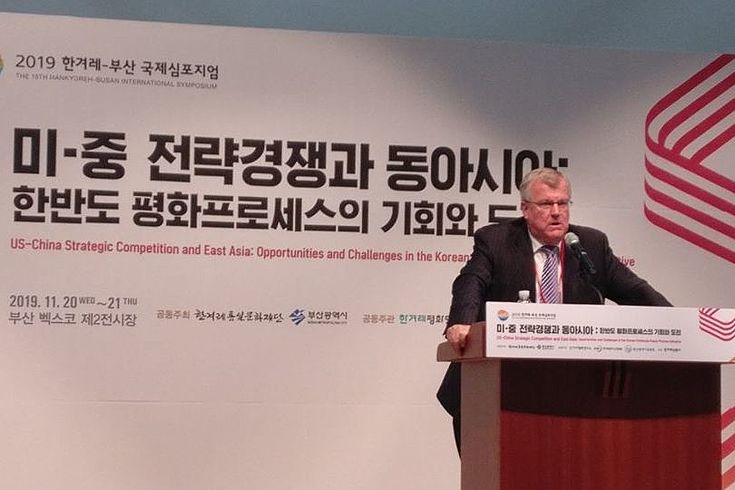Symposium
US-China Strategic Competition and East Asia

US-China Strategic Competition and East Asia: Opportunities and Challenges in the Korean Peninsula Peace Process Initiative
For two days policymakers, diplomats, academics and international specialists discussed the geo-political and geo-economic environment of Korea in the time of US-China strategic competition.
The geo-political situation of Korea worsened clearly in 2019: relations to Japan soured, the relation to China remains tense and the hopeful signs of inter-Korean rapprochement of 2018 did not come to fruition. How can a lasting peace and a prosperous “peace economy” be created under such circumstances?
Clearly, a conference alone cannot really answer this question, but discussing the question is a first step to answering it. Discussions between Hitoshi Tanaka, Chairman of the Institute for International Strategy at the Japan Research Institute, a former Japanese Deputy Minister of Foreign Affairs, with South Korean counterparts are an important way to maintain ties against political-diplomatic headwinds.
The afternoon of the first day saw a special lecture by Ambassador Simon Smith of the United Kingdom on “The UK and the Two Koreas”, followed by a session dealing with the peace process on the Korean Peninsula, with Presidential Advisor Moon Chung-In, NUAC executive vice president Jeong Se-Hyun and Im Jeong-Seok of the Sejong Institute speaking.

The second session was organized by the Korea Maritime Institute, which is located in Busan, and dealt with the “Peace Economy and Marine Fisheries Cooperation”. Here, Dr. Bernhard Seliger, representative of Hanns-Seidel-Foundation, talked about the opportunities of maritime aquaculture cooperation between North and South Korea.
Though under the current circumstances the scope for cooperation is rather limited, it is not impossible to start small-scale projects, which later can grow into larger approaches. Other speakers included Cho Jin-Hee, Director at the NK Business Center at KPMG Korea, Lee Sung-Woo, Deputy President of the KMI, and Sergey Khiridov of the Greater Tumen Initiative.
The second day saw session on the development of international ports in Northeast Asia, as well as on China-US strategic competition.
